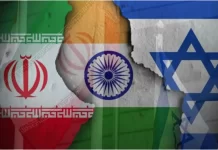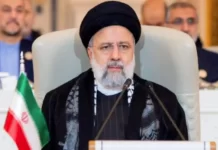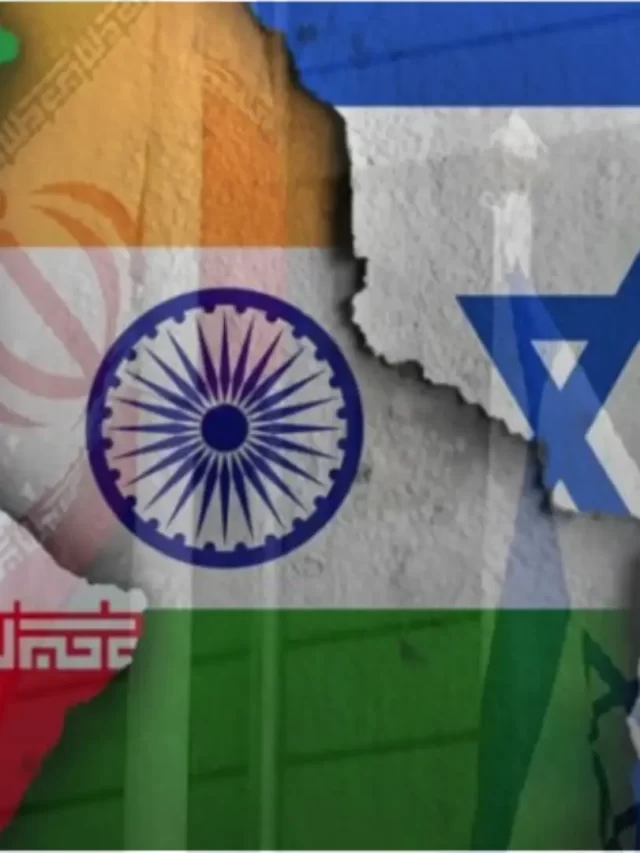What Iran-Israel Conflict Means for Middle East and India: Explained | International Relations | Mains Paper 2: Indian Diaspora
Introduction:
The ongoing conflict between Iran and Israel has far-reaching implications, not just for the Middle East but also for countries like India. With tensions escalating and recent events sparking concerns of a potential all-out war, it’s crucial to understand the dynamics of this conflict and its impact on various stakeholders.
Historical Context:
Islamic Revolution and Rejection of Israel:
The roots of the Iran-Israel conflict can be traced back to the Islamic Revolution in 1979 when Iran rejected Israel’s existence and vowed to undermine it. This ideological stance laid the foundation for decades of animosity and confrontation between the two nations.
Support for Anti-Israeli Groups:
Iran’s support for anti-Israeli militant groups like Hezbollah and Hamas further fueled tensions in the region. These groups have been involved in numerous conflicts with Israel, exacerbating the hostilities between the two sides.
Nuclear Program and Israeli Concerns:
Iran’s pursuit of a nuclear program has been a major point of contention, with Israel viewing it as a direct threat to its security. The fear of Iran obtaining nuclear capabilities has escalated tensions and raised the specter of a potential military confrontation.
Recent Escalation:
Missile and Drone Attacks:
Recent events, including unprecedented missile and drone assaults on Israel originating from Iran, have heightened concerns about the escalation of the conflict. While Israel managed to intercept most of the attacks, the implications of these aggressive actions cannot be understated.
Israel’s Response Options:
In response to provocations from Iran, Israel faces a dilemma regarding how to retaliate. Options include retaliation by proxy, targeted assassinations, cyberattacks, or direct military strikes. However, each option carries the risk of further escalation and wider regional repercussions.
Impact on India:
Economic Interests:
India has significant economic interests in the Middle East, including trade, investment, and energy imports. Any escalation of conflict in the region could disrupt trade routes, increase oil prices, and adversely affect India’s economy.
Security of Indian Diaspora:
The Middle East is home to a large Indian diaspora, particularly in the Gulf region. Turmoil and conflict pose risks to their safety and security, with concerns about piracy, hostage-taking, and general instability.
Global South Governance:
India recognizes the importance of stability in the Middle East for global south governance and stability. Instability in the region not only affects regional dynamics but also has broader implications for international security and cooperation.
Diplomatic Solutions:
India’s Advocacy for Diplomacy:
India advocates for diplomatic solutions to conflicts in the Middle East and supports initiatives for peace and stability. India’s historical and cultural ties with the region position it as a potential mediator and facilitator for dialogue.
Way Forward:
Restraint and De-escalation:
Both Iran and Israel must exercise restraint and avoid actions that could escalate the conflict further. Diplomatic channels should be utilized to resolve differences and prevent further bloodshed.
Regional Cooperation:
Encouraging regional actors, including neighboring countries, to collaborate and promote stability and security in the Middle East is essential. Regional initiatives can play a crucial role in defusing tensions and fostering dialogue.
International Support:
India should seek support from the international community, major powers, and multilateral organizations to pressure Iran and Israel to pursue peaceful resolutions. Collective efforts are needed to prevent the situation from spiraling out of control.
Conclusion:
The Iran-Israel conflict is a complex geopolitical issue with profound implications for the Middle East and beyond. As tensions escalate and threats loom large, it’s imperative for all stakeholders, including India, to prioritize diplomacy, dialogue, and de-escalation to prevent further instability and bloodshed.
FAQs:
- What are the root causes of the Iran-Israel conflict? The conflict stems from ideological differences, historical animosities, and strategic interests, with issues like Iran’s rejection of Israel’s existence and its support for anti-Israeli groups exacerbating tensions.
- How does the conflict impact India’s economic interests? India’s significant economic ties with the Middle East make it vulnerable to disruptions caused by escalating conflict, including trade disruptions, increased oil prices, and potential investment risks.
- What measures can India take to safeguard its diaspora in the Middle East? India should work closely with host countries and international partners to enhance security measures for its diaspora, including evacuation plans, crisis management strategies, and diplomatic interventions.
- What role can India play in resolving the Iran-Israel conflict? Given its historical ties and diplomatic influence, India can act as a mediator and facilitator for dialogue between the conflicting parties, advocating for peaceful resolutions and promoting stability in the region.
- Why is it essential for regional actors to cooperate in resolving the conflict? Regional cooperation is crucial for addressing the root causes of the conflict, mitigating security threats, and promoting peace and stability in the Middle East, which ultimately benefits all stakeholders involved.























